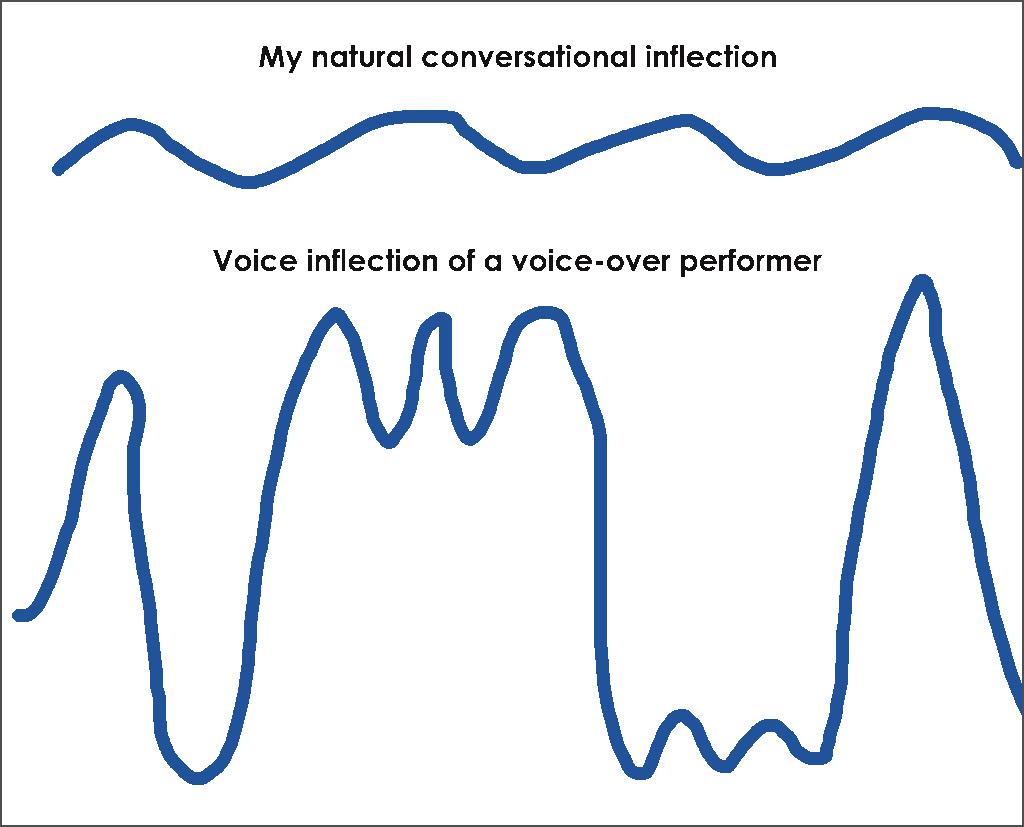The Problem with Speaking Conversationally in Video Tutorials
At the last voice workshop I attended, the instructor (Scott) gave us scripts to read and then critiqued our performance. I tried to imagine myself talking to a friend rather than reading the script, but it didn't come across with much effect. Scott said I was being too reserved, too monotone.
I realized that my conversation technique with voice overs, which I wrote about with such praise last time, was flawed. When I converse naturally with others, I speak in a boringly flat tone. My colleague has the same problem, only he says he sounds like Eoyre, the donkey on Winnie the Pooh:
I tend to speak in a quiet monotone, so doing voice over takes some extra effort. I have to shut myself in a room so that as I read the script, I can speak up loud enough to get varied tones going. That went all right, but it still didn't sound natural. ("A Couple of Things I Learned About Captivate Demos Last Week")
Scott encouraged me to put more energy to it, to inflect more, and add more emotion and feeling. A background in acting would have been helpful.
This week while watching TV I've been listening closely to the voices (separating them from the visuals on the screen). I can see what Scott is talking about. Actors aren't soft-spoken, reserved people. Actors inflect all over the voice spectrum. They have a lot of energy and drama in their voices.
Here's a graph that reflects that difference in voice inflections.

Jane says I can still keep the conversation metaphor, but I have to pretend that I'm talking to the president of the United States.
Ben says that gesturing with his hands helps him inflect more:
I started gesturing a little with my hands while recording. Interestingly, it made a large difference. My tone sounded much more relaxed and conversational. Tonal changes happened in better places. I also read the script with fewer mistakes. So there's a trick for my bag.
I'm supposed to practice voice overs, and right now my practice is limited to reading children's books in creative ways to my kids. But if you and I run into each other at a conference sometime, and I'm moving my hands in strange ways, over-inflecting my voice talking about mundane things, bear with me, I'm practicing.
Additional Resources
- The Art of Voice Acting, James Alburger
- Word of Mouth, by Susan Blu
- The Voice Actors Guide to home Recording, by Jeffrey Fisher and Harlan Hogan
- There's Money Where Your Mouth Is: An Insider's Guide to a Career in Voice Overs, by Harlan Hogan
- The Voice Over Bulletin Board
- Voice 123
- Voices.com
About Tom Johnson

I'm an API technical writer based in the Seattle area. On this blog, I write about topics related to technical writing and communication — such as software documentation, API documentation, AI, information architecture, content strategy, writing processes, plain language, tech comm careers, and more. Check out my API documentation course if you're looking for more info about documenting APIs. Or see my posts on AI and AI course section for more on the latest in AI and tech comm.
If you're a technical writer and want to keep on top of the latest trends in the tech comm, be sure to subscribe to email updates below. You can also learn more about me or contact me. Finally, note that the opinions I express on my blog are my own points of view, not that of my employer.

